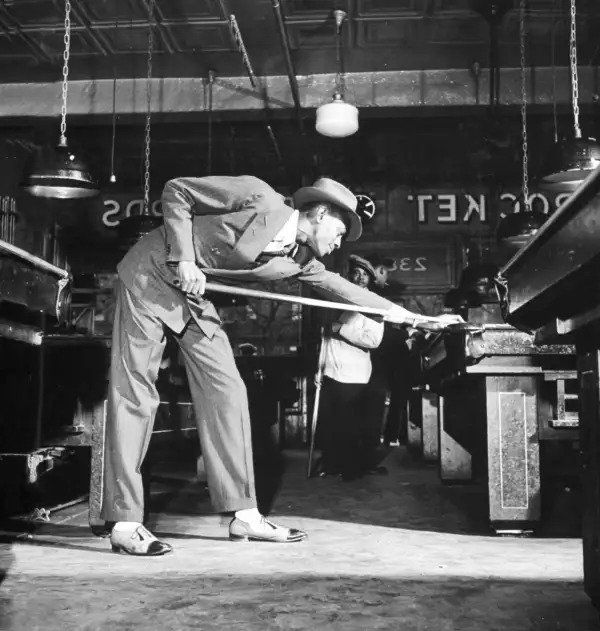How Can I Bulletproof My Career?

Po Bronson, author of the bestseller What Should I Do With My Life?, studied the science of competition for his latest book, Top Dog: The Science of Winning and Losing, written with Ashley Merryman. He spoke to Money's Donna Rosato.
How can I bulletproof my career?
The idea that you can do that is sexy if you are looking for stability. It's also unrealistic and a dangerous way to think. If you try to insulate yourself from competition, you lose your edge, and it undermines the whole notion of bulletproofing. You're playing not to lose rather than playing to win.
Why is competition -- the subject of your latest book -- so crucial at work?
When you compete, you tap into hidden reserves of effort and motivation. The challenge teases out that extra capacity. It's energizing and gives you focus.
So do I have to go head-to-head with my colleagues all the time?
Competing in the workplace is about constant improvement. To last a long time in a career means always looking for problems, and always creating solutions to the problems you find. It's not about having a higher salary or bigger bonus.
Are you negotiating better deals, landing bigger clients, producing higher-quality work? Are you sought-after for important projects or by other companies? That's a good way to measure how well you're competing.
Can't being competitive also be seen as a negative?
There are two kinds of competitiveness. Maladaptive is what gives competitiveness a bad name -- someone who wants to win at all costs, even if it means cheating or destroying relationships.
Adaptive competitiveness is not about beating a rival, but it is playing with in the rules and striving for excellence. You can be extremely competitive. As long as you're adaptive, there's no downside.
What if I'm not the competitive type? How can I cultivate the drive?
How we perform in a competitive situation is part biology, part mental. Someone who has a "worrier" genotype is more prone to anxiety but is a good planner. "Warriors" do their best under pressure.
There's no easy way to know what gene you have, but look at how you do in stressful situations. By the time you're in your forties and fifties, you have a lifetime of experience to know how you'll perform best. A worrier can reduce anxiety with lots of preparation. Even if you're uncomfortable, it's important to put yourself in the spotlight.
This sounds exhausting. How about resting on my laurels?
That's called retirement.
How do I keep from burnout over a long career?
You need periods of rest and recuperation. You can get that from your personal life. An enormous amount of my time goes to my family, my kids, my volunteer work as a youth soccer coach. I get energy from those parts of my life, and that makes me better at what I do professionally.
Spend time with people outside your field but in related fields, at conferences or socially. New ways of thinking will energize you. It's also about the challenges you take on. When the challenge is too easy, you get bored. When it's too hard, you burn out.
But doesn't the competitive fire dim at some point?
There's a notion that we become less competitive as we age. That's not what we found. People compete more until about age 50, then it drops off. That's not because we're less competitive. We compete just as intensely, but we become more discriminate and selective in what we choose to compete over. That's healthy.
You say that stress is a good thing. How can that be?
There's a difference between long-term stress and short-term stress. Long-term stress is always bad for performance. Variable stress is your body's response to a challenge, and that triggers energy. It's often stress that helps you produce the energy for what you need to achieve.
You found that men and women compete differently. In what way?
Women are highly attuned to the odds of winning and the risks of losing in a way that men aren't. As a result, they often avoid the long-odds choices and might make fewer foolish mistakes. You see this in politics. The chances of beating an incumbent are about 10%. In 2012 only four women ran for the Senate against an incumbent [18 men did]. It's not risk aversion. It's more accurate risk perception.
You write that exploiting the home field advantage can help your career. How's that?
We act differently on our own turf. We're more assertive and less willing to concede. You can boost your odds of success if you ask your boss for a raise in your own office. Make a pitch to a client at your office. Arrive first to a meeting and spread your papers out. It even works virtually if you're on conference calls first. These are small but meaningful forces.
Few people stay in the same job for life. How should you approach making a switch?
Bulletproofing your career does not mean staying at your job forever. If you think about it as just hanging on to the same job, you won't expose yourself to the market and gain skills. The reality is that most people don't spend a lot of time thinking about or preparing for a change. We're usually forced into it because of a layoff, a merger, a new boss.
So I should be thinking about my next job now?
Yes, but stay grounded. A two-year study of job hunters who spent a lot of time visualizing their dream job found that they were less likely to find a new job, and when they did it was for lower pay. Fantasizing makes you less motivated to work toward your goal. A better approach is to imagine all the obstacles and how you can overcome them.
You've talked to a lot of people who've had long, satisfying careers. What's their secret?
Most of what makes work feel satisfying and meaningful isn't solved by changing your job or what field you're in. The baseline is you need adequate challenge, and you need your contribution to be respected and honored by the people around you. And if you make that work, then your work is pretty meaningful.
